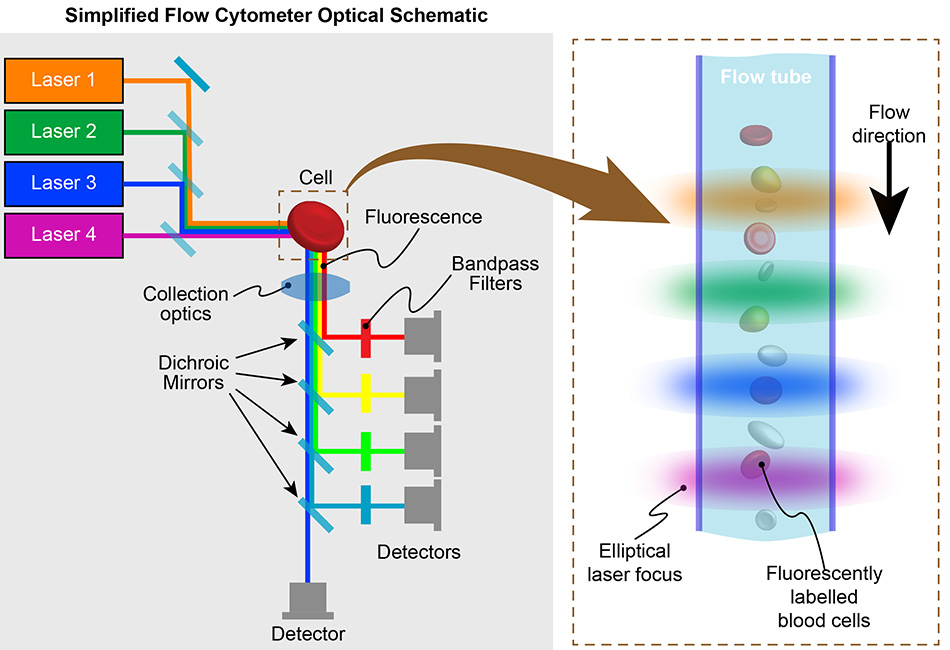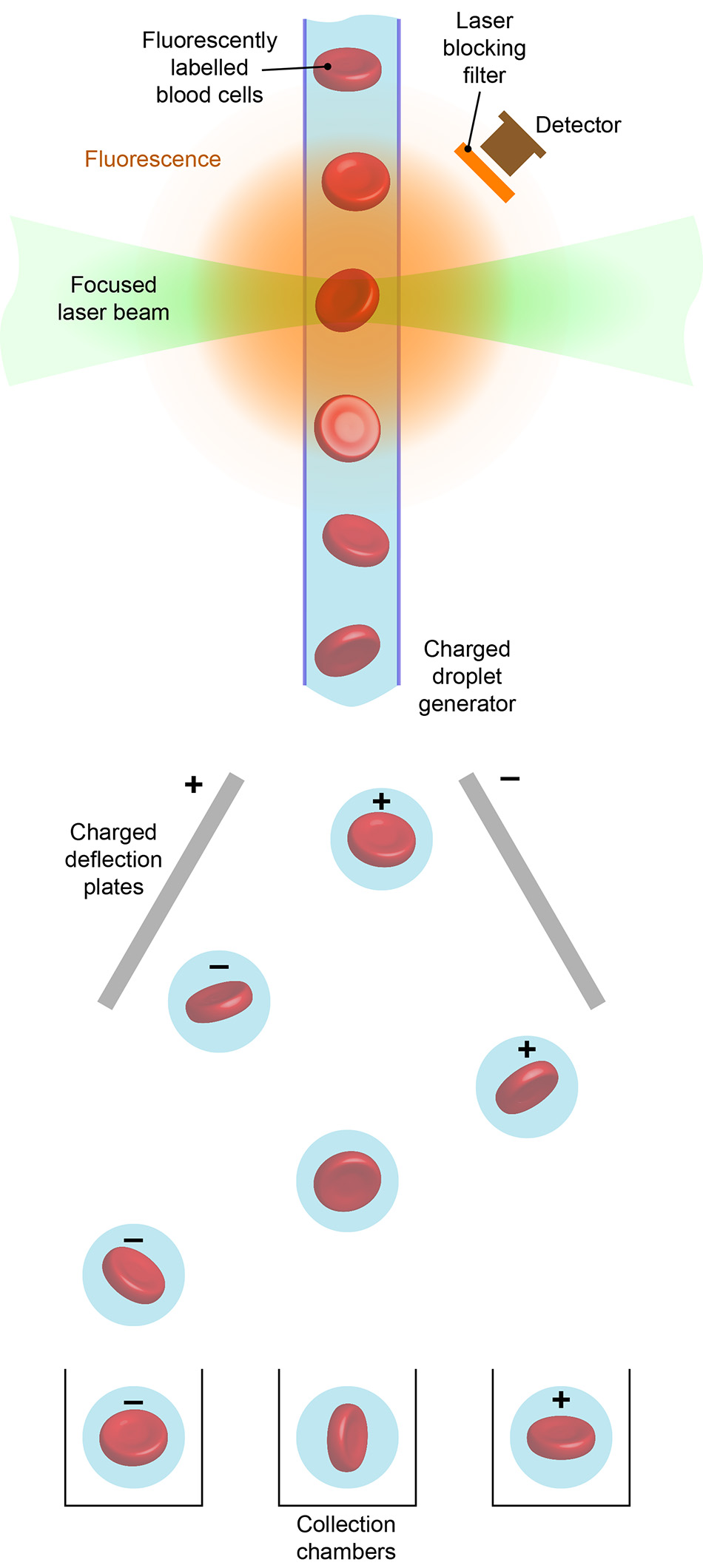Flow Cytometry
What is Flow Cytometry?
Flow cytometry uses lasers to count or sort different types of cells and other biological particles. When you get a blood count from your doctor, the analysis is done via flow cytometry. It’s also used in research, pharmaceuticals, and even cattle ranching.
How Flow Cytometry Works
Flow cytometry is a widely used method to non-destructively analyze (count) and/or sort cells, sperm, and other small bio-entities according to properties that can be optically measured. This involves forcing the cells to pass in single file through a flow cell often using a flow method called hydrodynamic focusing.
In the so-called interaction zone, the cells are then interrogated by a series of one or more focused laser beams. (See the figure below.) The resultant scatter and (Stokes-shifted) fluorescence is collected by optics and separated by filters into discrete wavelength bands. The amount of light in each band is then measured using a photodetector.

How Flow Cytometry Measures Cells
In blood cell analysis applications in both research and clinical laboratories, cells are first treated with several fluorescent labels (fluorochromes). These are engineered using antibody biochemistry so that they stick only to specific antigens (usually proteins) on the outside of the cells. In some applications, intracellular contents such as DNA may also be fluorescently labeled in some way.
As each labeled cell passes through the interaction zone, analysis of the relative intensities in the wavelength bands can be used to count the population as a function of different parameters typically using multivariate parameter analysis. In addition, light scatter at key angles (forward angle scatter and side angle scatter) can be measured to determine the cell’s shape.
Multi-parameter Flow Cytometry
The term multi-parameter flow cytometry refers to counting analysis instruments and protocols capable of assaying tens of different cell parameters. This requires using multiple laser wavelengths.
A conventional flow cytometer typically uses the same four laser wavelengths: 405 nm, 488 nm, and 640 nm, with an optional 561 nm. But some of the more complex multiparameter instruments may use up to 10 different lasers. These instruments increasingly include one or more ultraviolet wavelengths to extend the instrument bandwidth beyond the visible spectrum and hence increase the total number of parameters. Some of these instruments can also incorporate more than 100 separate photodetectors.
Multi-wavelength Laser Engines
Manufacturers of conventional and multi-parameter flow cytometers increasingly rely on multi-wavelength laser engines that integrate several lasers, the focusing optics, and control electronics in a compact sealed package. This simplifies the task of assembling and aligning the instrument and increases its reliability and time between services.
Fluorescence Activated Cell Sorters (FACS)
For some research applications such as oncology, immunology, and drug discovery, flow cytometry can be used to sort cells, i.e., to selectively collect a target type of cell while discarding all the others. In a fluorescence-activated cell sorter (FACS), the flow passes through a nozzle prior to the interaction zone that ensures the cells are individually held in tiny droplets which pick up a small static charge from the nozzle. Electrostatic plate electrodes are then activated to create a field that deflects the charged droplets into a collection tube, according to the cell type registered by the instrument’s computer.

Figure 2: Cell sorting with flow cytometry. Electrostatic deflection is used to direct the collection of cells, sperm, or other targets according to their fluorescence and/or scatter signatures.
Sorting by flow cytometry is also used in animal husbandry and fish farming. In animal husbandry cattle sperm are sex sorted: there is a preference for female sperm in dairy cattle and male sperm in beef cattle. Here the sperm of the “wrong” sex are destroyed by another laser beam. In farming genetically modified fish, eggs may be sorted to ensure raising only sterile adults, eliminating any risk of escaped fish contaminating the native fish gene pool.
Flow Cytometry: Streamlining Cell Testing
Flow cytometry is used every day for common blood tests, cell research, and animal husbandry. The use of lasers and fluorescence in flow cytometry has revolutionized the way doctors and scientists analyze cells. Before flow cytometry, scientists and doctors had microscopes and various chemical testing processes. Counting cells was usually done manually, a tedious, time-consuming, and potentially error-prone process. Flow cytometry has streamlined cell testing, giving doctors and scientists the ability to run more tests and collect more data in a shorter amount of time.